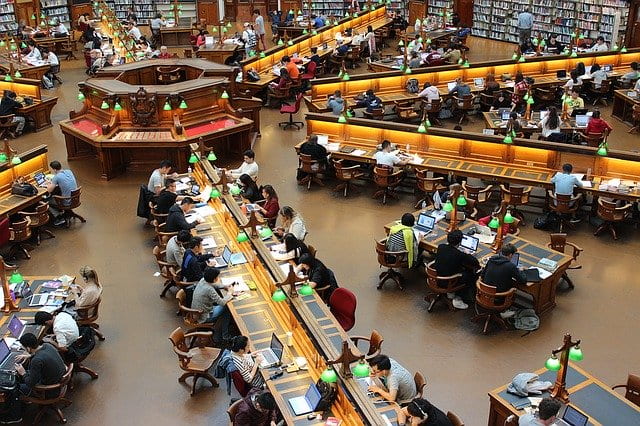
Being a student carries great pressures. Whether that’s to fit in with new social groups, to achieve high grades, or to complete extracurricular activities, it can be difficult to fulfil all typical student-like criteria. Now pair this with the stress of life outside of being a student, from mental health concerns and family issues to money worries and day to day responsibilities.
Although going to university offers many positives, through this level of pressure and stress, many students do unfortunately turn to drugs and alcohol. While they are pretty normalised through the party scene and through younger generations, this influx is resulting in higher levels of student addiction.
Unfortunately, a wide range of drugs, including alcohol, depressants, stimulants and hallucinogens are being abused, helping to escape or ease those pressures. In tandem, new environments, new levels of independence and greater accessibility to illegal substances have influenced the rise in student addiction.
This is highly concerning, as numbers continue to advance across the UK linked to drug and alcohol addiction diagnosis. Those who have their whole lives ahead of them are using negative and life-limiting coping strategies while seeing emotional support as weak or vulnerable.
Yet, as there are many negative effects of alcohol and drug abuse, of addiction as an advanced encounter, we urge you, if you’re a student, to consider your coping strategies. If excessive drug and alcohol consumption is yours, understanding the negatives of this habitual, hard to break illness is imperative.
If you’re ready to do so, we can help here at Action Rehab through our guide to student addiction. Reach out today for further support on overcoming the stigma of student addiction.
The causation for student addiction
Causations of initial drug and alcohol consumption can vary significantly, especially for students. Yet, there are common experiences which fuel substance abuse to addiction.
Firstly, new, unfamiliar levels of independence commonly result in irresponsible behaviour. Along with missing university lectures, along with placing the party lifestyle overwork, deciding to consume drugs and alcohol is one of those irrational decisions. Now pair this with the heightened influence and accessibility of drugs and alcohol across university campuses, and you can see how substance abuse begins.
Secondly, there are many pressures linked to a student’s lifestyle. Those pressures can be difficult to balance. A common coping strategy, used by students, is substance abuse. Down to the relief that. drug and alcohol consumption can offer, this can become an ongoing necessity; developing into a student addiction.
Lastly, mental health issues are now heightened more than ever. Again, drug and alcohol abuse is viewed as a form of self-medication, as a coping technique to subsidies the likes of depression or anxiety. Trying to fit in while suffering from mental health issues can be challenging, exactly how a dual diagnosis can manifest.
While there are many other pressures or stress-inducing situations which fuel addiction in students, above are some of the most commonly noted causations. Those causations will then act as the influential stimulus, driving student addiction figures, drug-related crimes and deaths.
Student addiction – a guide on addictive drugs
Commonly abused addictive drugs found across university campuses include:
Alcohol
Alcohol is easy to abuse, easy to access, legal drug. Down to our binge drinking culture in the UK, excessive consumption has been normalised for students. Many, in fact, develop addiction side effects unknowingly, as the withdrawal is limited.
While viewed as harmless, if enabled, alcohol can fuel a life-changing physical and psychological addiction, impacting work, grades and future capabilities.
Hallucinogens
Hallucinogens, such as magic mushrooms are abused highly by students down to the escape they provide. Many will hope to revert from reality for a period of time. Hallucinogens are the chosen drug for this. Yet, long-term abuse can develop into an associated mental health issue, along with addiction.
Depressants
Depressants are used by students to relax and unwind. This is down to the influence they have on depressing the central nervous system. While positive side effects are initially experienced, over time, negative side effects can present themselves, highly linked to depression and anxiety.
Stimulants
Student addiction rates are in most cases driven by stimulants. Offering the opposite to depressants, stimulants help to elevate moods, to provide greater energy, and to instil motivation. This can be a sought-after feeling while dealing with the stresses of being a student.
If you’re abusing any form of drug, it is important to understand the long-term negative impacts they will carry, on your health, lifestyle and future career post-university.
The negatives of student addiction
Negativity is very likely for any addict. Yet, for students, this can be detrimental for their futures. From great health concerns, with a focus on mental health issues, to crime, to money problems, to unplanned sexual encounters and negative influence on grades/future capabilities, developing an addiction, as a student can cause long-term detriment.
This is exactly why we are sharing this guide to student addiction, as singular abuse of drugs or alcohol, as ongoing exposure, through university, and the enablement of consumption can easily lead to an addiction.
If you’re abusing heavy quantities of drugs and alcohol, considering a way out from addiction will be recommended; exactly what we can help with at Action Rehab.
Reducing addiction rates with our tips at Action Rehab
Avoiding addiction can be very hard to promise. Yet, through our tips here at Action Rehab, student addiction rates can reduce.
Addiction education should be normalised
Like other important stages of life, education around addiction and mental health issues should be normalised. By increasing awareness of the negatives of addiction, it’s likely that many more students will avoid the initial consumption of drugs. This will especially be the case when considering the damage to their future careers.
Following healthy routines and lifestyle choices
Healthy routines and lifestyle choices should be promoted across university campuses. By spreading the word and again normalising exercise, nutrition and positive socialisation, this can help reduce the reliance on artificial happy chemicals.
Balancing work and play
Being a student should be about work and play. Voicing this and its importance can help to reduce the consistency of drug and alcohol consumption, ultimately slowing down the addiction cycle.
Preparing for the stresses of university
As university is a new experience, carrying many stresses, preparing for this big step will be wise. Those preparations will reduce the impact of stress, decreasing the need of negative coping strategies, such as substance abuse.
Although easier said than done, actively promoting the negatives of student addiction, paired with positive and proactive lifestyle tips will help to reduce diagnosis levels. If you are, however, unfortunately, struggling, at Action Rehab we can support you. Opening up may feel difficult at first. Yet, by doing so, we can help you enjoy your time as a student by overcoming the addictive tendencies of drugs and alcohol.
Posted on Friday, October 16th, 2020 at 9:48 am in Addiction, Latest News.






 Call Us
Call Us Contact Us
Contact Us